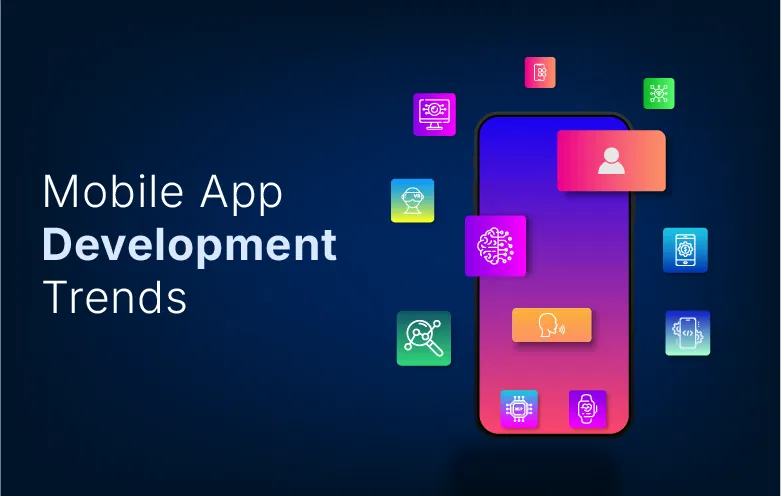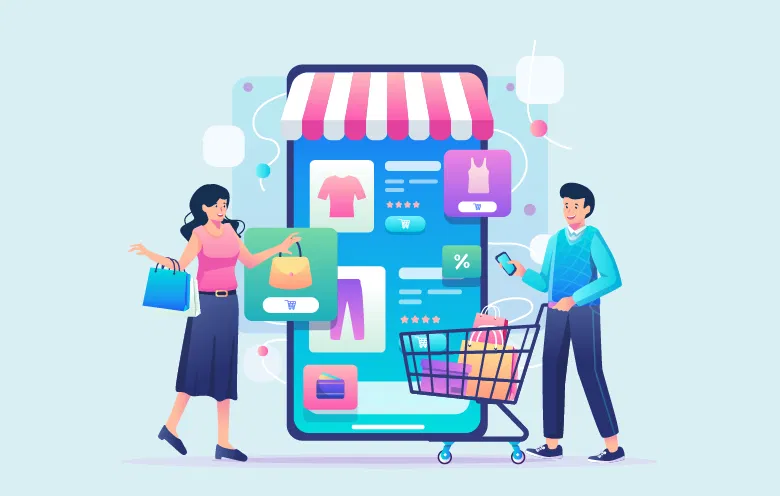Most modern businesses today are struggling for better applications that ensure enhanced business operations within internal teams. They also face challenges in understanding and incorporating the end user’s needs. Moreover, outdated legacy systems hinder growth and adaptability.
As the digital transformation wave surges, robust and scalable enterprise apps become the lifeblood of forward-thinking companies. These high-performing apps fulfil all your business needs and meet industry standards that integrate the required features.
This blog explores the benefits of enterprise mobile app, focusing on how they can enhance communication and teamwork. Dive into the latest trends and must-have features, discover various enterprise apps, and offer practical insights on choosing the right enterprise mobile app development company for business growth.
Understanding enterprise app development and its importance in business operations
Enterprise app development is the process of creating software applications to meet the specific needs of an organization. These applications are designed to support and address complex business needs, enhance various business processes, improve productivity, and ensure smooth operations across different departments within an enterprise. It also builds a gap between internal communication.
This evolving and agile application is important in the enterprise application lifecycle as it
- Centralizes data management
- Optimizes business operational process
- Improves internal and external (client) communication
- Customization and scalability
- Data security
According to a recent study by HubSpot, 83% of organizations have experienced overall productivity growth by integrating the applications.
Emerging trends in enterprise app development for 2024 and beyond
AI and machine learning:
- Predictive analytics: Analyzes large datasets to predict future trends and behavior and improves informed decision making.
- AI automation: Automates repetitive tasks, increases efficiency, and reduces human error.
- Personalized user experiences: Enhances interactions and services based on user preferences and behavior.
Cloud computing:
- Scalability: Easy scaling of resources up or down based on demand without the significant hardware investment needs.
- Flexibility: Access applications and data from anywhere, fostering remote work and collaboration.
- Cost-efficiency: Pay-as-you-go models reduce costs associated with maintaining physical servers and infrastructure.
IoT integration
- Real-time data collection: Connect and monitor devices to collect data continuously, providing insights for improving operations.
- Analysis: Utilize data gathered from IoT devices to optimize processes, enhance efficiency, and develop new business models.
Generative AI
- Automated development and code generation: Generative AI accelerates app development by automating repetitive coding tasks and generating code snippets, speeding up the development process.
- Enhanced user experience: It improves user interfaces and personalization by leveraging natural language processing and predictive analytics to tailor applications to individual user needs and preferences.
Top features of enterprise app development to ensure business process optimization
Scalability and data management
Enterprise apps are designed to support an increasing number of users, transactions, and data as the business grows without compromising performance. They efficiently manage and allocate resources to meet the changing demands. They ensure efficient storage capacity and can handle large volumes of data efficiently, ensuring quick access and retrieval.
Integration
You can seamlessly integrate your enterprise apps with existing applications such as ERP, CRM, and third-party services. Its data synchronization features ensure consistent and accurate data across all integrated platforms.
Security
Security is paramount and data protection is equally important. Implementing robust encryption, authentication, and authorization mechanisms to safeguard sensitive information against potential risks. Also, secure enterprise apps ensure compliance adherence to industry-specific regulations and standards.
Analytics and reporting
It provides tools for data analysis, generating insights, and creating detailed reports. This feature enables decision makers to analyze process efficiencies, understand user behavior, and adapt to market trends for business development and growth.
Various types of enterprise app
Enterprise app development based on users
| Users | Definition |
| Employee | It is used for internal employees and does not have too many features. For example, managers and developers use it to provide information related to the project. Also, HR applications can be developed for better workforce management. |
| Department | Improves productivity of a particular department. For example, with the use of email marketing tools, solve sales and marketing challenges faster. |
| Company | Engage the entire workforce in a private network for employees to connect with C-suites, executives, and download documents. User role-based enterprise apps can ensure security among stakeholders. |
Enterprise app development based on functionality
| Types of Application | Description | Examples |
| Enterprise resource planning (ERP) | Integrates core business processes such as supply chain, finance, marketing, and R&D. | SAP, Oracle ERP Cloud, Microsoft Dynamics 365 |
| Customer relationship management (CRM) | Manages interactions with customers and combines technologies, practices, and strategies. | Salesforce, HubSpot, Zoho CRM |
| Business intelligence (BI) Tools | Analyzes and visualizes business data from different areas | Tableau, Power BI, QlikView |
| Human resource management systems (HRMS) | Manages employee information and HR functions | Workday, ADP, BambooHR |
| Supply chain management (SCM) | Manages and streamlines supply chain activities | Oracle SCM Cloud, SAP Integrated Business Planning |
Benefits of enterprise mobile app development
The key benefits associated with enterprise application development simplify complex business processes and highlight the advantages and difficulties that businesses might encounter during the process.
- Enhanced efficiency: Streamline business processes
- Collaboration: Enhance communication and teamwork
- Data-driven decisions: Provide valuable insights through analytics
- Scalability: Supports growth and changing business needs
- Customization: Tailored to specific business requirements
- Security: Protects sensitive business data
- Cost savings: Reduces operational costs in the long term
- Competitive advantage: Offers unique capabilities to stand out in the market
- User experience: Provides a user-friendly interface and improves adoption
- Maintenance and support: Continuous improvement and issue resolution
Considerations in enterprise app development
Choosing the right enterprise mobile app development company
Selecting the right enterprise mobile app development company, like Softweb Solutions, that meet the demands of your business, encompassing programming languages, databases, and frameworks. Here are the points for consideration:
Experience and expertise
- Industry experience: Consider a company with experience in your specific industry.
- Technical expertise: Ensure they have expertise in the latest technologies and mobile app development frameworks like React Native, Flutter, and many more.
Portfolio and case studies
- Previous projects: Review their portfolio and check the types of projects they have completed.
- Case studies: Look for detailed case studies that demonstrate their problem-solving abilities and the success of their apps.
Technical capabilities
- Full stack development: Ensure they can handle front-end and back-end development efficiently.
- Integration skills: Ability to integrate the app with existing enterprise systems and third-party services.
Customization and flexibility
- Customized solutions: The company should be able to provide customized solutions that fit your business needs.
- Adaptability: They should be flexible and open to changes during the development process.
Security Practices
- Data security: Ensure they follow best practices for data security and comply with relevant regulations (e.g., GDPR, HIPAA).
- Code security: Secure coding practices to protect against vulnerabilities.
Support and Maintenance
- Post-launch support: Check if they offer ongoing support and maintenance after the app is launched.
- Update management: Ensure they can handle app updates and new feature additions as needed.
Conclusion
Enterprise mobile apps are now a necessity for modern businesses striving to stay competitive. They bridge the gap between outdated systems and the dynamic demands of today’s market, enhancing communication, collaboration, and overall efficiency. By adopting the latest trends and features and partnering with the right enterprise mobile app development company, businesses can unlock new levels of productivity and innovation.
Ready to revolutionize your enterprise’s connectivity and collaboration? Connect with us today for enterprise app development services to experience smooth business operations and robust security measures.




